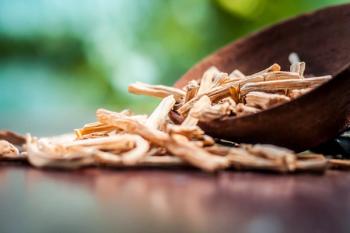
Will FDA Grant Hemp GRAS, NDI Status If U.S. Hemp Growing Is Legalized?
Does FDA consider hemp ingredients legal for use in dietary supplements and food and beverages?
U.S. lawmakers in January
Many food and supplement products containing hemp ingredients are already on the U.S. market-everything from cereal and granola bars to hemp protein, hemp hearts, and cannabidiol-rich (CBD) supplement oils. FDA, however, has never recognized hemp as Generally Recognized as Safe (GRAS) for use in food and beverages, nor has it been officially established where hemp falls within FDA’s new dietary ingredient (NDI) provisions for dietary supplements.
In 2000,
“I think the whole regulatory status of hemp is in limbo both for food and dietary supplements,” says John R. Endres, ND, chief science officer for GRAS and NDI consultant AIBMR Life Sciences Inc. (Puyallup, WA).
For what it’s worth, some hemp stakeholders have long contended that CBD commerce is already legal in the United States. These stakeholders cite landmark court of appeals decisions in cases between the Hemp Industry Association and the U.S. Drug Enforcement Administration (DEA) (
CannaVest itself currently sells CBD oils and CBD oil products within the United States. Tomc says that as long as commercial hemp ingredients are sourced legally-imported, not grown domestically-food and supplement products containing industrial hemp can lawfully be sold in the United States and “therefore the FDA cannot-and has not as of yet-taken any action to regulate this particular source of CBD/cannabinoids (hemp) as a controlled substance.”
Those opinions aside, for food and supplement manufacturers seeking an official FDA stance on hemp, that stance is largely missing, save for the 2000 GRAS rejection for Consolidated Growers and Processors. Today, hemp still has no GRAS status or food additive status, nor has it been explicitly dictated whether hemp is considered a supplement ingredient.
So although CannaVest believes CBD commerce is legal, the company is currently pursuing self-affirmed GRAS status for its CBD oil. “We are moving very quickly to expedite our toxicological review assessment and self-affirmed GRAS designation and look to leading this category with an even higher-and broader-safety standard than required to meet the NDI. Hence, we seek to attain a ‘reasonable certainty of no harm under the intended conditions of use’ [threshold], giving us the flexibility to address both the growing food/beverage and dietary supplement demand,” Tomc says.
That safety data is what will be instrumental in eventually securing any type of GRAS or NDI designation from FDA, he and Endres underline, even if the newly proposed Industrial Hemp Farming Act of 2015 finally establishes a definition for hemp (containing less than 0.3% THC).
“I think that the two-establishing toxicological safety and defining industrial hemp-are separate issues but not mutually exclusive,” Tomc says. “The two are intertwined, but the big focus needs to be on demonstrating that the compound is safe, that we already know is safe, that there’s no evidence that it’s not safe. We need to establish that first.”
Toxicological evidence, he says, will be FDA’s chief concern. “I don’t think that FDA would be blinded by the legal gray area. That wouldn’t have any bearing on their response to the toxicological data.” In essence, he says, the data will have to speak for itself.
Endres also recommends that companies strengthen their toxicology portfolios. “In general, there's nothing to suggest that hemp oil products that are low in THC are not safe, but CBD levels vary widely in hemp oil products currently on market,” he says. “However, there is no pivotal toxicological data to support a basis for the determination that the substance is reasonably certain to be safe for its intended use.” This certainty would come by determining “the addition level per serving of specific foods, with an estimation of cumulative daily exposure that is less than the acceptable daily intake (ADI) derived from the No Observed Adverse Effect Level (NOAEL), in a 90-day repeated oral toxicity study in a rat model,” for instance.
The bottom line, he says? “This means that companies need to do Comprehensive Safety Assessments.”
It’s not clear whether widespread legalization of industrial hemp growing and the removal of hemp from Schedule I by way of the newly proposed Industrial Hemp Farming Act of 2015 would cause FDA to reconsider hemp’s GRAS and NDI status, but at least one source Nutritional Outlook spoke to believes this is possible.
“I think that once hemp is removed from being a controlled substance, then FDA can recognize it as an acceptable agricultural ingredient,” says Chris Boucher, vice president at US Hemp Oil/CannaVest Corp. “Right now, technically it’s a Schedule I drug-it’s considered a narcotic-so FDA can’t really do anything until hemp is removed from Schedule I.”
In the meantime, food and supplement companies will be keeping a close eye on the bill. “I think that once the bill is moved through and passed, you’ll maybe see FDA start getting more involved because there are so many companies already selling hemp,” Boucher says. “We just try to be in compliance-we work with cGMP- and NSF-certified manufacturers-and we operate beneath that banner.”
Read more:
Editor-in-Chief
Nutritional Outlook magazine
jennifer.grebow@ubm.com
Photo © iStockphoto.com/3dbobber
Newsletter
From ingredient science to consumer trends, get the intel you need to stay competitive in the nutrition space—subscribe now to Nutritional Outlook.




